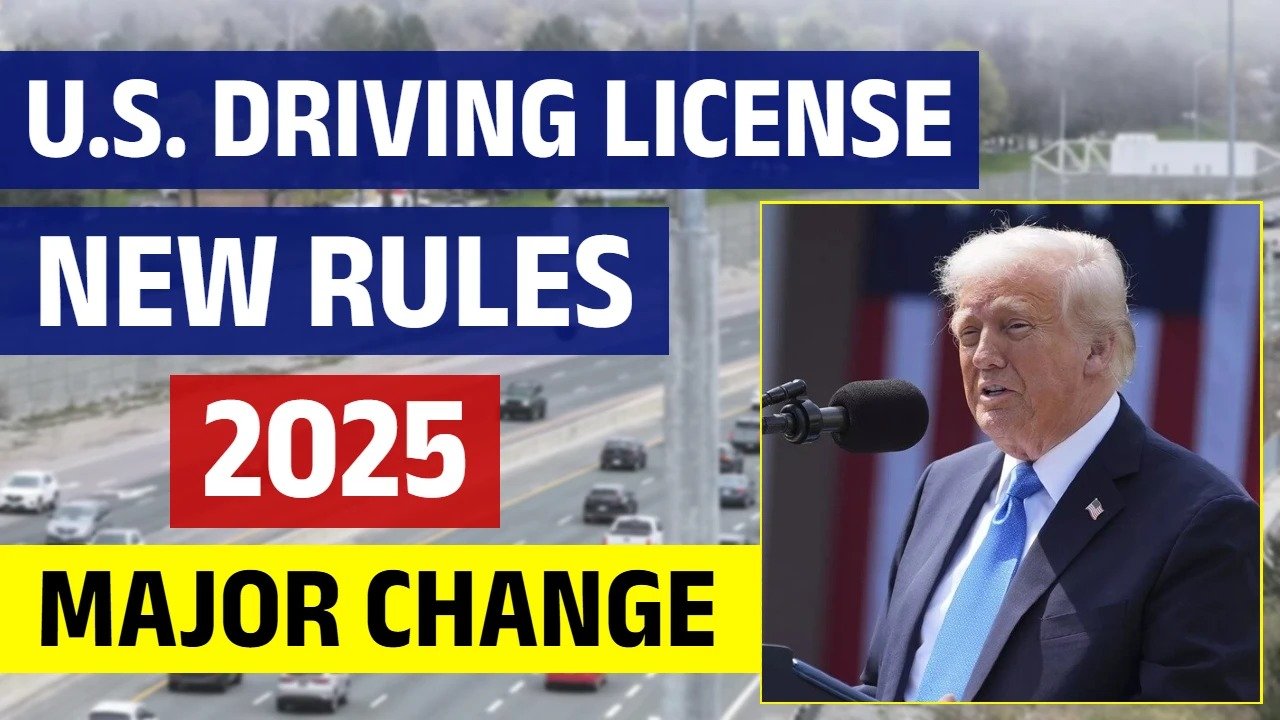Starting in late 2025, American motorists, especially those aged 70 and above, are navigating a significant dual shift in licensing rules. The focus is on implementing the final phase of federal security standards (REAL ID) while simultaneously adopting stricter, safety-focused renewal procedures for older drivers nationwide.
These changes are not about prohibiting driving but about enhancing national security and ensuring all drivers maintain the necessary physical and cognitive abilities to remain safe on the road. All drivers must prepare now to avoid travel disruptions and ensure continued driving privileges.
Phase 1: The REAL ID Requirement (Federal Mandate)
The REAL ID Act establishes a uniform federal security standard for state-issued driver’s licenses and identification cards. While the final enforcement deadline was May 7, 2025, the impact continues to be felt by millions of drivers whose licenses are now coming up for renewal.
What you need to know about REAL ID:
- Federal Access Only: You do not need a REAL ID to drive, register to vote, or receive federal benefits.
- Proof of Identity: A REAL ID, marked with a gold star in the corner, is required to:
- Board domestic commercial flights.
- Enter secure federal facilities (like military bases or certain government buildings).
- The Alternative: If your license is not REAL ID-compliant (it usually says “Not For Federal Purposes”), you must use an alternative, federally approved document, such as a valid U.S. Passport or Passport Card, for travel or access.
- Required Documents: Obtaining a REAL ID requires an in-person visit to the DMV/MVA with original documents proving:
- Identity and Lawful Status (e.g., U.S. Passport or Birth Certificate)
- Social Security Number (e.g., W-2 form, SSA-1099)
- Two Proofs of Residency (e.g., Utility bill, bank statement)
Phase 2: Stricter Renewal Rules for Drivers Over 70
While specific renewal requirements are set by individual state DMVs, a nationwide movement is tightening the rules for senior drivers to enhance road safety. These new standards, now being implemented across various states, focus on ability, not just age.
Key changes drivers aged 70 and older may face:
- More Frequent Renewals: Instead of the standard eight-year cycle, many states are shortening renewal periods to every two to four years for drivers over 70, and sometimes annually for those over 87.
- Mandatory Testing: The shift eliminates relying solely on self-declaration. Most seniors now face mandatory vision tests at every renewal. For drivers over 80, cognitive screenings to assess memory and reaction time are becoming common.
- Road Test Requirement: Seniors over 87, or those flagged during health or cognitive screenings, may be required to pass an on-the-road driving test.
- In-Person Renewals: Many states now mandate that seniors must renew their license in person at a DMV office, eliminating online or mail-in options to allow for essential health and vision checks.
How Seniors Can Prepare Now
To maintain both their driving independence and their ability to travel, seniors should be proactive:
- Check Your License: Look for the gold star. If it’s missing, and you fly domestically or visit federal sites, start gathering your required REAL ID documents immediately.
- Schedule Early: Do not wait until your license expiration date. Schedule a DMV appointment well in advance, as new in-person requirements are leading to longer wait times.
- Get a Vision Check: Visit your eye doctor before your DMV appointment, as some states accept recent third-party vision results, saving you time and ensuring you meet the minimum safety standard (typically $20/60$ vision).
Frequently Asked Questions (FAQs)
Q. Do I have to get a REAL ID if I am over 70?
A. You only need a REAL ID if you plan to fly domestically or enter a secure federal facility. If you have a valid U.S. Passport, you can use that instead.
Q. Can my old, non-REAL ID license be used for driving?
A. Yes. Your old license remains valid for driving purposes, renting a car, and non-federal identification until its expiration date.
Q. Are the new senior driving rules the same in every state?
A. No. The federal government sets the REAL ID standard, but specific renewal frequency, testing requirements, and age triggers for seniors are determined by each state’s DMV.
Q. Can my family report me as an unsafe driver?
A. Yes. In most states, family members, doctors, or law enforcement can report concerns about a driver’s safety to the DMV, which may then trigger a mandatory medical review or re-examination test.
Conclusion
The new security and safety requirements taking effect this year prioritize the well-being of all road users while preserving the independence of older adults. For seniors, the time to act is now.
Check your state’s DMV website immediately for specific renewal requirements based on your age, gather your REAL ID documents, and proactively ensure your vision and cognitive health meet the new safety standards.





